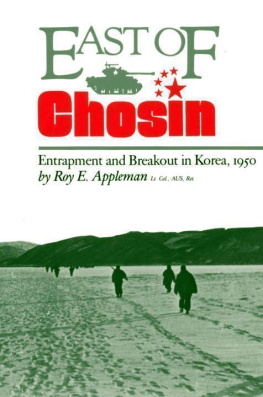ROUTLEDGE LIBRARY EDITIONS:
SECURITY AND SOCIETY
Volume 8
PARADOXES OF WAR
First published in 1990 by Unwin Hyman Inc.
This edition first published in 2021
by Routledge
2 Park Square, Milton Park, Abingdon, Oxon OX14 4RN
and by Routledge
52 Vanderbilt Avenue, New York, NY 10017
Routledge is an imprint of the Taylor & Francis Group, an informa business
1990 Zeev Maoz
All rights reserved. No part of this book may be reprinted or reproduced or utilised in any form or by any electronic, mechanical, or other means, now known or hereafter invented, including photocopying and recording, or in any information storage or retrieval system, without permission in writing from the publishers.
Trademark notice: Product or corporate names may be trademarks or registered trademarks, and are used only for identification and explanation without intent to infringe.
British Library Cataloguing in Publication Data
A catalogue record for this book is available from the British Library
ISBN: 978-0-367-56733-0 (Set)
ISBN: 978-1-00-312078-0 (Set) (ebk)
ISBN: 978-0-367-60973-3 (Volume 8) (hbk)
ISBN: 978-1-00-310275-5 (Volume 8) (ebk)
Publishers Note
The publisher has gone to great lengths to ensure the quality of this reprint but points out that some imperfections in the original copies may be apparent.
Disclaimer
The publisher has made every effort to trace copyright holders and would welcome correspondence from those they have been unable to trace.
1990 by Unwin Hyman, Inc.
This book is copyright under the Berne Convention. No reproduction without permission. All rights reserved.
Unwin Hyman, Inc.
8 Winchester Place, Winchester, Mass. 01890, USA
Published by the Academic Division of Unwin Hyman Ltd
15/17 Broadwick Street, London W1V 1FP, UK
Allen & Unwin (Australia) Ltd,
8 Napier Street, North Sydney, NSW 2060, Australia
Allen & Unwin (New Zealand) Ltd in association with the Port Nicholson Press Ltd,
Compusales Building, 75 Ghuznee Street, Wellington 1, New Zealand
First published in 1990
Library of Congress Cataloging-in-Publication Data
Maoz, Zeev
Paradoxes of war : on the art of national self-entrapment / Zeev Maoz.
p. cm. (Studies in international conflict ; v. 3)
Bibliography: p.
Includes index.
ISBN 0-04-445113-X
1. War. 2. International relations. I. Title. II. Series.
U21.2.M346 1989
327.16dc20
89-32673
CIP
British Library Cataloguing in Publication Data
Maoz, Zeev
Paradoxes of war : on the art of national self-entrapment. (Studies in international conflict; 3).
1. War. Political aspects
I. Tide II. Series
355. 02
ISBN 0-04-445113-X
Typeset In 10 on 12 point Bembo and printed in Great Britain by Hartnolls Ltd, Bodmin, Cornwall
To Inbal and Omry, for asking tough questions
This book emerged out of my difficulty in answering a question posed to me by my (then) seven-year-old daughter. In the spring of 1983 I received a letter from the Israeli army informing me that I was called for a tour of duty in Lebanon. My daughter, alarmed by the prospect, asked me what we were doing there, and why we did not go back to our old border. My first inclination was to run by her the official story about terrorist attacks and the need to defend our towns and villages in the north from repeated shelling and infiltration. But I immediately realized that it did not sound very convincing, even to a seven-year-old child. So my second scheme was to try to convince her by explaining that our leaders were pursuing a fairly stupid policy that was leading nowhere. Because they had been elected by a democratic process, there was little we could do other than protest and hope that next time the public would force the government to make smarter choices. This also did not sound terribly convincing.
Whatever answer I tried to devise, I found it difficult to make it stick. If the invasion of Lebanon had been a smart move, how come we were stuck in a deep mess? Why, within a year, had we lost 100 times more soldiers than we had lost in guerrilla operations emanating from Lebanon over the three preceding years combined? And if the invasion had been a mistake, how was it that the reasonably smart people who ran the government failed to realize it and take the appropriate measures to pull the army out of there? More important, why were so many usually intelligent people fooled by a deceptive rhetoric that sounded false and hypocritical even to a seven-year-old?
I am not sure that today I can provide a more convincing explanation of that war to my eight-year-old son, but this book represents a start. It is not a book about the 1982-1985 Lebanon war, though this war will be examined quite thoroughly in the coming pages. It is about those wars, or those aspects of war, that even the most knowledgeable adult will typically find it difficult to explain even to children. And one of the primary reasons for such difficulty, I believe, is that the kind of logic we employ in our everlasting efforts to comprehend the world around us is simply inadequate when it comes to explaining those puzzles.
Paradoxes of War addresses two questions: (1) Why do generally smart people drag their nations, sometimes knowingly, into traps of tremendously destructive proportions? (2) Why is it that nations that find themselves in messes of their own doing, and know it, make it difficult for themselves to escape the traps? The approach I adopt in this book is somewhat unconventional. It focuses on the perverse aspects of a perverse human activity, trying to explain why they are sometimes unavoidable rather than what kind of mistakes lead to their emergence. The paradoxes examined in the present study are not necessarily very frequent, but they do recur with some persistence. And when they do, their consequences are fairly severe. So the primary justification for a study of perversities is their significance, not their prevalence.
The book is organized around the various stages of war. The first part focuses on causes of war, particularly on those causes of war that are associated with schemes to prevent it. The second part focuses on the processes of war management, especially those aspects that lead to long and costly wars due to participants wishes and plans to make them short and decisive. The third part examines those short- and long-term implications of war that turn the notion of war as an instrument of policy on its head. In each chapter I discuss a paradox of war cast as a causally induced contradiction between reasonable expectations and the outcomes of motivated behavior based on them. I attempt to provide alternative explanations to these paradoxes and to document them in wars that have taken place during the twentieth century.
I have made an effort to balance rigor and simplicity of presentation. The idea is to make the book accessible to a wide audience. Though the primary target readership of this study is the serious student of international politics, I believe that it will also be found interesting by a more general readership. Certainly the issues it addresses are of sufficient significance to appeal to concerned citizens who worry about what their governments, knowingly or unknowingly, might be doing to them. This represents what, I believe, is a reasonable blend of theory and history, scientific methods and jargon, and more traditional historical analysis. I have tried to keep more sophisticated analysis to a minimum. Only one chapter contains a brief mathematical appendix that proves a point made in the text. Uninitiated readers can skip this appendix without loss.










